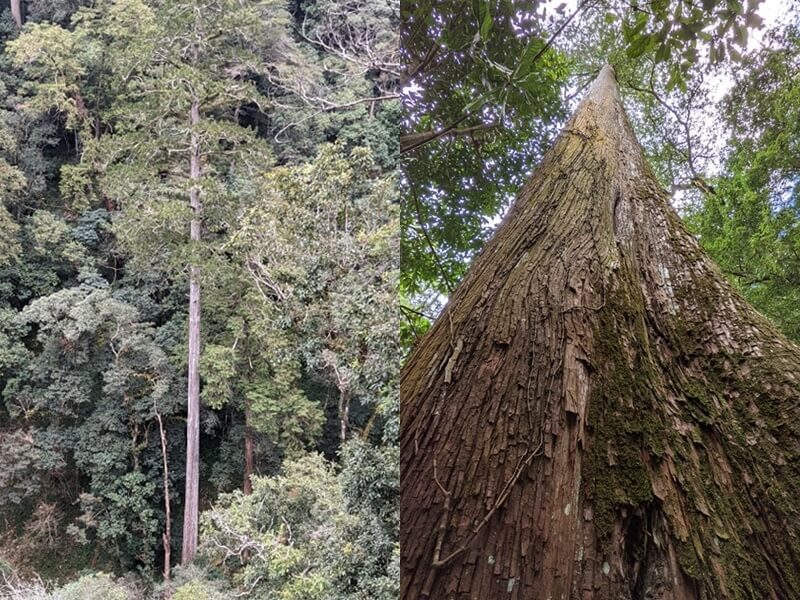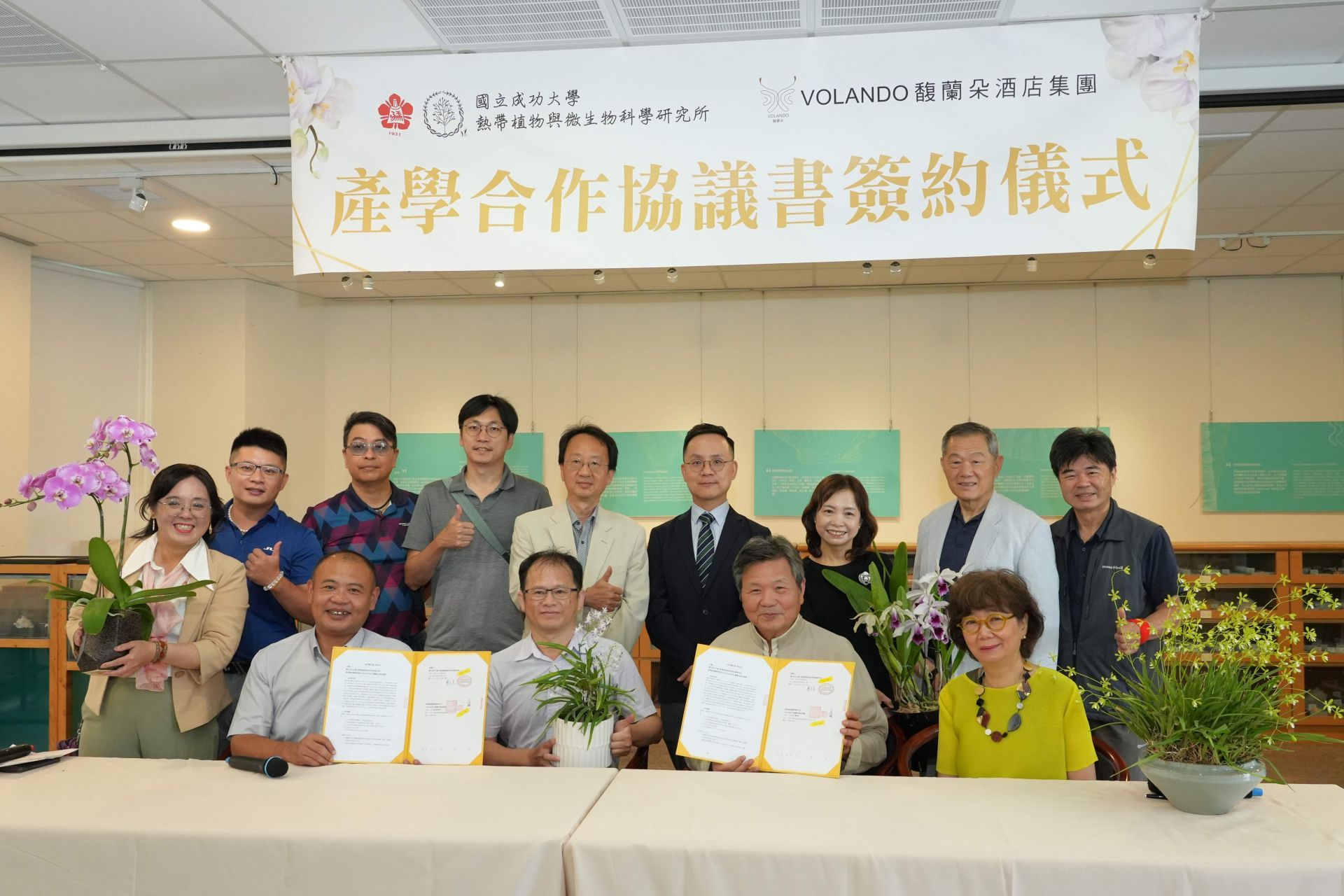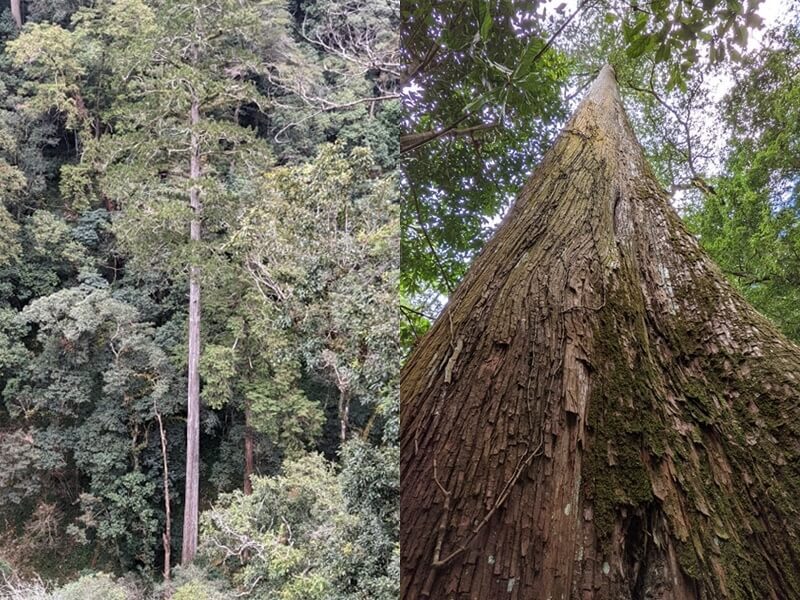SDG15
NCKU Social Science Center hosted a workshop on balancing human development and bird conservation.
National Cheng Kung University (NCKU) College of Social Science's Center for Sustainable Development and Safety and Health hosted "The Workshop of Human-Bird Entanglements" on the 17th. The workshop aimed to explore the tourism value and intangible value of ecological conservation effectiveness, as well as the relationship between the conservation achievements of the black-faced spoonbill, a winter migratory bird to Taiwan, and Taiwan's industrial development. By combining biological conservation issues with economics, accounting, anthropology, and industrial development, the workshop provided attendees with a comprehensive understanding of the importance of biological conservation. Professor Fu-Zen Shaw (Scopus), Dean of the College of Social Science, expressed hope for more interdisciplinary collaborations between academia and industry to deepen ecological conservation efforts and make them more effective.
The workshop was chaired by Dean Fu-Zen Shaw and featured presentations by three scholars: Prof. Scott Simon from the University of Ottawa, Associate Professor Ya-Wen Pang from the Department of Accountancy at NCKU, and Associate Professor Yen-Lien Kuo (Scopus) from the Department of Economics at NCKU. They discussed their research findings in the field of biological conservation. They engaged in discussions with practitioners including Commissioner Hung-Sheng Su from the Marine Biodiversity Conservation Division of the Ocean Conservation Administration, Dr. Kuang-Ying Huang, Director of the Liukong Management Station of Taijiang National Park, and Assoc. Research Fellow Meng-Chi Hong from the Biodiversity Research Institute, Council of Agriculture (Deputy Director of the Black-faced Spoonbill Ecology Exhibition Hall). Attendees also included Commissioner Ming-Hsiung Hsu from the Marine Habitat Division of the Ocean Conservation Administration, Secretary-General Tzu-Yao Tai from the Black-faced Spoonbill Conservation Society, Assoc. Prof. Yu-Cheng Wang (Scopus) from the Department of Law at NCKU, and Prof. Sheng-Fu Liang (Scopus) from the Department of Computer Science and Information Engineering at NCKU, among others.
Prof. Scott Simon, whose research focuses on the cultural and livelihood values between species and humans, has conducted extensive research worldwide. He conducted in-depth research in Taiwan from 1996 to 2001 and remains interested in the relationship between Taiwan's rich biodiversity and its social and cultural context. Associate Professor Ya-Wen Pang shared her research on the non-market value analysis of the conservation achievements of the black-faced spoonbill and volunteer-led free tours, conducted in collaboration with Associate Professor Yen-Lien Kuo. The conservation of black-faced spoonbills has been successful, with their population exceeding 4,000 birds, accounting for 64% of the global population observed in Taiwan. They discussed the market value of black-faced spoonbill ecological conservation and volunteer services, estimating it to be over NT$200 million annually. Suggestions were made to provide policy recommendations for conservation through interdisciplinary collaborations involving economics, accounting, the National Park Administration, and the Black-faced Spoonbill Conservation Society. Fu-Zen Shaw suggested integrating sponsorship with corporate sustainability reports (ESG) for further support.
In addition to academic research presentations, Dr. Meng-Chi Hung, Deputy Researcher at the Black-faced Spoonbill Ecological Exhibition Hall, explained how conservation promotion extends beyond the exhibition hall to wetland education activities in elementary and junior high schools, fostering early connections between students and local biodiversity. Special Commissioner Hong-Sheng Su from the Ocean Conservation Administration raised the dilemma of food chain conservation between protected species, using the example of the crested tern in Matsu, highlighting ongoing challenges faced by ecological conservation workers. Dr. Guang-Ying Huang, an expert in raptors, suggested adhering to natural laws and avoiding excessive intervention.
The workshop, organized by NCKU College of Social Science's Center for Sustainable Development and Safety and Health, brought together academia, civil conservation organizations, and government departments to discuss ecological conservation and social environmental issues, aiming for more horizontal collaborations in the future to collectively contribute to ecological conservation efforts.
The workshop was chaired by Dean Fu-Zen Shaw and featured presentations by three scholars: Prof. Scott Simon from the University of Ottawa, Associate Professor Ya-Wen Pang from the Department of Accountancy at NCKU, and Associate Professor Yen-Lien Kuo (Scopus) from the Department of Economics at NCKU. They discussed their research findings in the field of biological conservation. They engaged in discussions with practitioners including Commissioner Hung-Sheng Su from the Marine Biodiversity Conservation Division of the Ocean Conservation Administration, Dr. Kuang-Ying Huang, Director of the Liukong Management Station of Taijiang National Park, and Assoc. Research Fellow Meng-Chi Hong from the Biodiversity Research Institute, Council of Agriculture (Deputy Director of the Black-faced Spoonbill Ecology Exhibition Hall). Attendees also included Commissioner Ming-Hsiung Hsu from the Marine Habitat Division of the Ocean Conservation Administration, Secretary-General Tzu-Yao Tai from the Black-faced Spoonbill Conservation Society, Assoc. Prof. Yu-Cheng Wang (Scopus) from the Department of Law at NCKU, and Prof. Sheng-Fu Liang (Scopus) from the Department of Computer Science and Information Engineering at NCKU, among others.
Prof. Scott Simon, whose research focuses on the cultural and livelihood values between species and humans, has conducted extensive research worldwide. He conducted in-depth research in Taiwan from 1996 to 2001 and remains interested in the relationship between Taiwan's rich biodiversity and its social and cultural context. Associate Professor Ya-Wen Pang shared her research on the non-market value analysis of the conservation achievements of the black-faced spoonbill and volunteer-led free tours, conducted in collaboration with Associate Professor Yen-Lien Kuo. The conservation of black-faced spoonbills has been successful, with their population exceeding 4,000 birds, accounting for 64% of the global population observed in Taiwan. They discussed the market value of black-faced spoonbill ecological conservation and volunteer services, estimating it to be over NT$200 million annually. Suggestions were made to provide policy recommendations for conservation through interdisciplinary collaborations involving economics, accounting, the National Park Administration, and the Black-faced Spoonbill Conservation Society. Fu-Zen Shaw suggested integrating sponsorship with corporate sustainability reports (ESG) for further support.
In addition to academic research presentations, Dr. Meng-Chi Hung, Deputy Researcher at the Black-faced Spoonbill Ecological Exhibition Hall, explained how conservation promotion extends beyond the exhibition hall to wetland education activities in elementary and junior high schools, fostering early connections between students and local biodiversity. Special Commissioner Hong-Sheng Su from the Ocean Conservation Administration raised the dilemma of food chain conservation between protected species, using the example of the crested tern in Matsu, highlighting ongoing challenges faced by ecological conservation workers. Dr. Guang-Ying Huang, an expert in raptors, suggested adhering to natural laws and avoiding excessive intervention.
The workshop, organized by NCKU College of Social Science's Center for Sustainable Development and Safety and Health, brought together academia, civil conservation organizations, and government departments to discuss ecological conservation and social environmental issues, aiming for more horizontal collaborations in the future to collectively contribute to ecological conservation efforts.
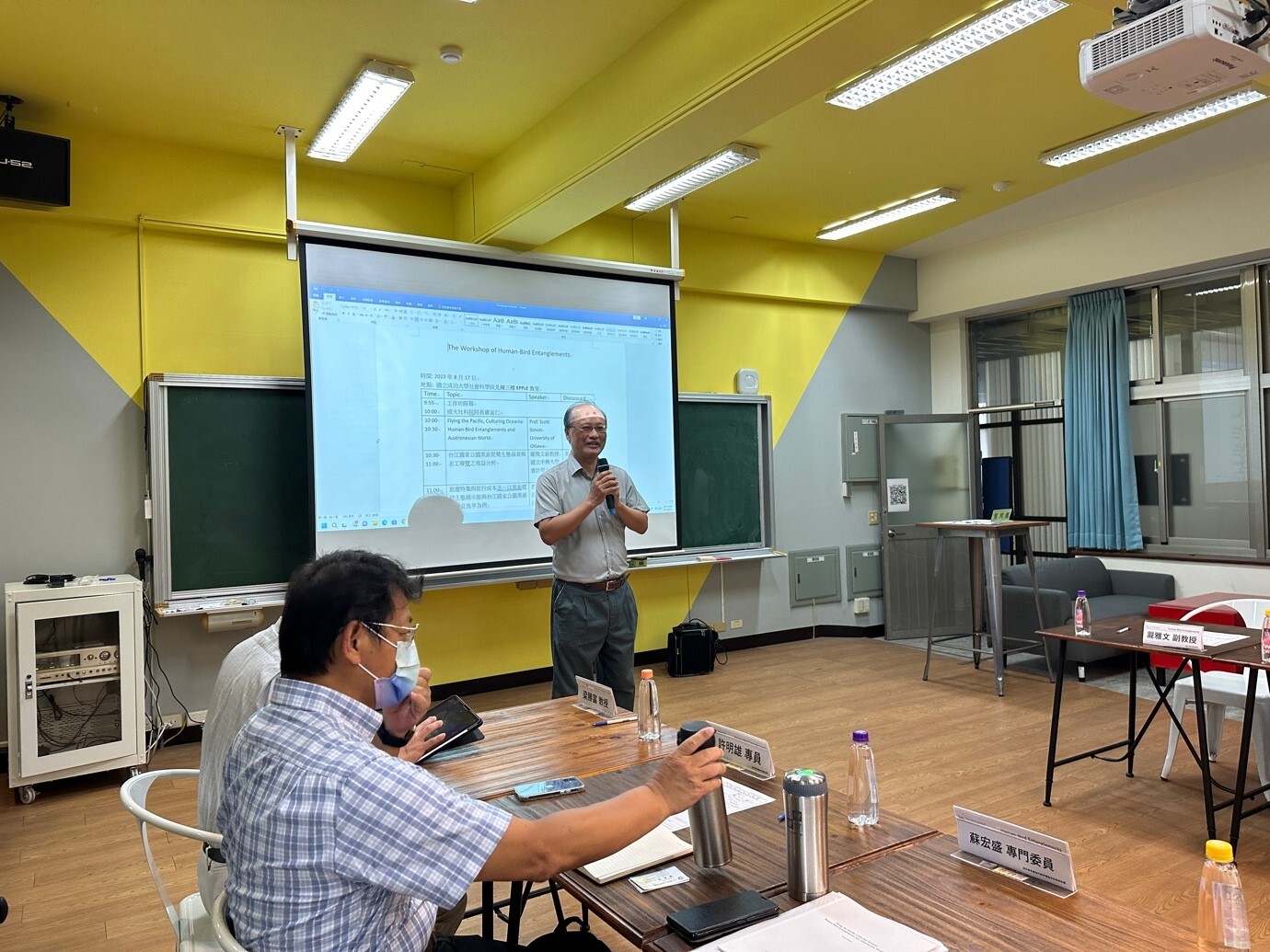
Dean Fu-Zen Shaw of the Institute of Social Sciences presided over the workshop.
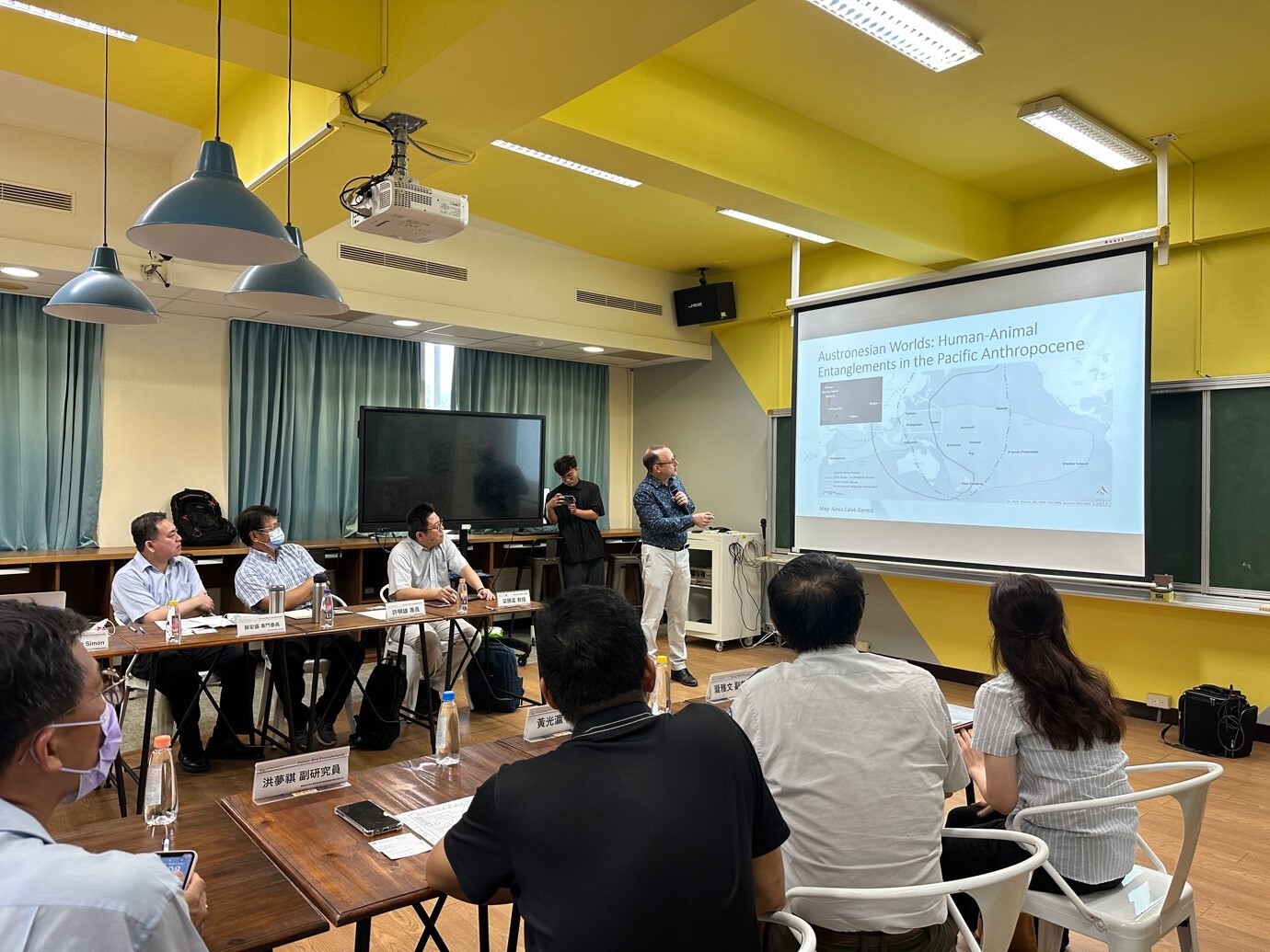
Prof. Scott Simon shares fascinating research.
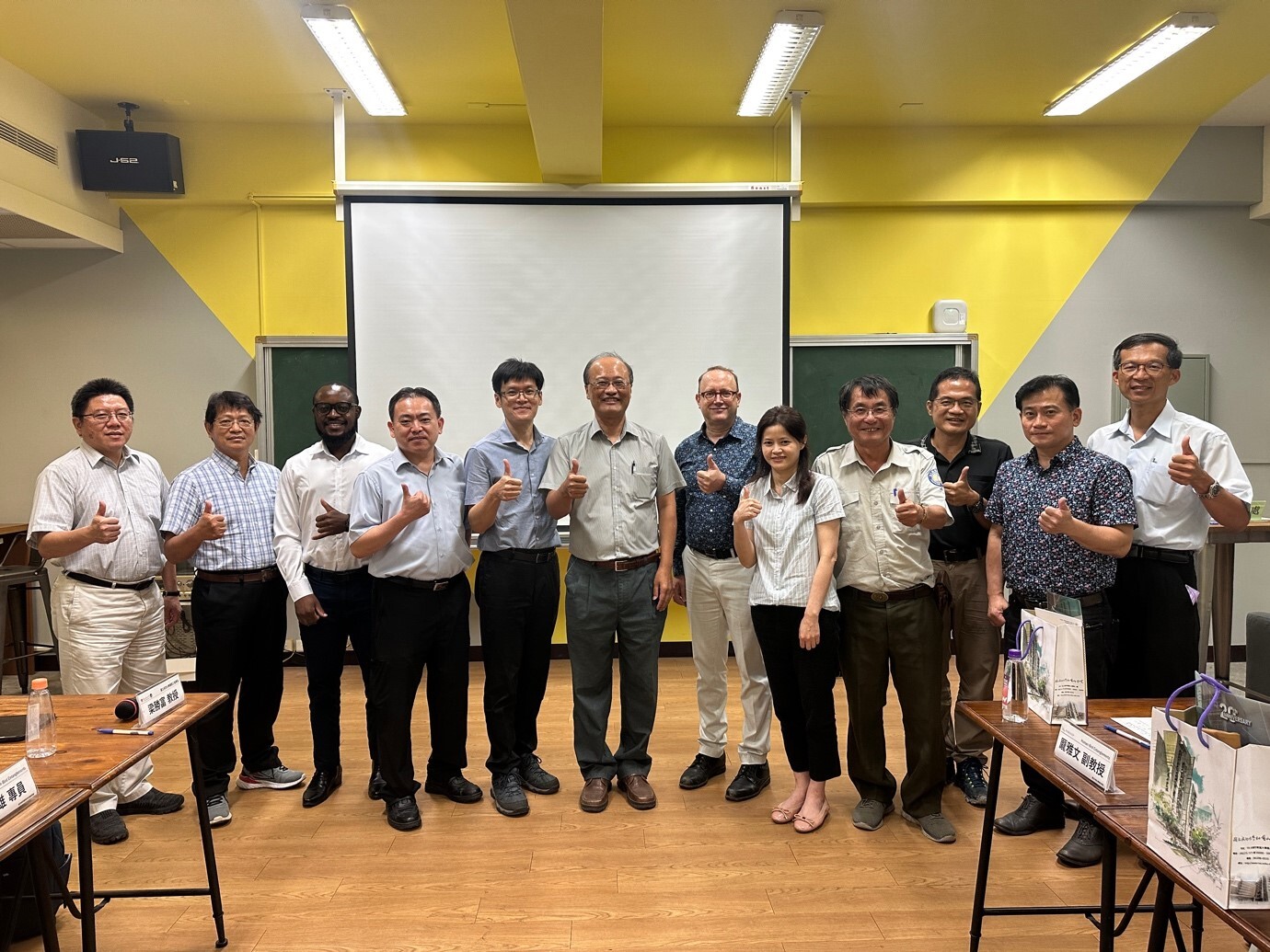
Group photo of all workshop participants.





